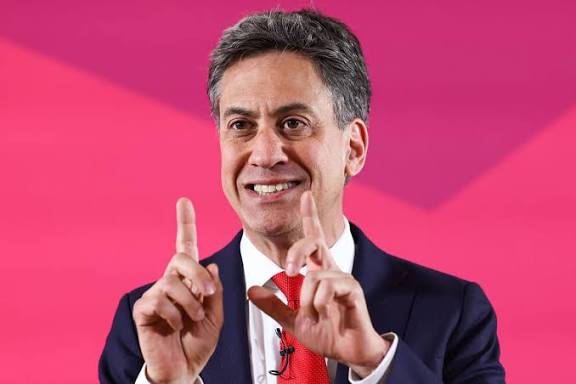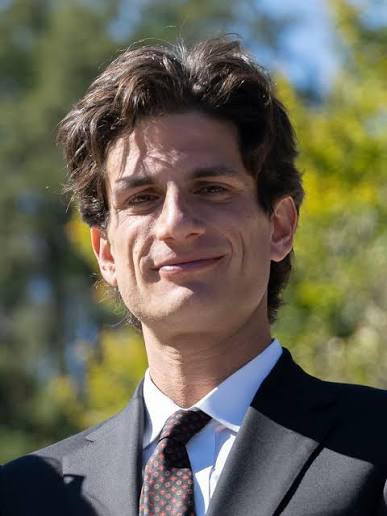Terrorism Charges Dropped: What This Means for Luigi Mangione’s Case

There was not enough evidence that Mangian intended to terrorize the population. Today we will discuss about Terrorism Charges Dropped: What This Means for Luigi Mangione’s Case
Terrorism Charges Dropped: What This Means for Luigi Mangione’s Case
On September 16, 2025, a New York judge dismissed two of the state‑level terrorism charges against Luigi Mangione, who is accused of killing Brian Thompson, CEO of UnitedHealthcare. While these dismissals mark a significant legal development, the case against Mangione continues on other fronts — including murder charges both in state and federal courts. Understanding what this ruling means involves delving into the legal definitions, evidentiary thresholds, jurisdictional complexities, and broader implications for law, policy, and public perception.
Who Is Luigi Mangione & What Are the Core Allegations

Luigi Mangione is a 27‑year‑old Ivy League graduate accused of fatally shooting UnitedHealthcare CEO Brian Thompson on December 4, 2024. The shooting took place in Manhattan, as Thompson arrived at an investor conference.
Prosecutors allege that the act was ideologically motivated. They pointed to Mangione’s diary entries expressing animus toward the healthcare insurance industry (“the health insurance cartel”), praises for Ted Kaczynski, and a “manifesto”‑like writing.
In addition to state charges, Mangione is facing federal charges, including murder involving a firearm and related counts, which may carry the death penalty.
What Charges Were Dropped & Why
Dropped Terrorism Charges
Judge Gregory Carro dismissed two key terrorism counts in the state case:
First‑degree murder “in furtherance of an act of terrorism”
Second‑degree murder as a crime of terrorism
These were dropped because the judge concluded the evidence provided by prosecutors was legally insufficient to meet specific elements required under New York state’s definition of terrorism.
Key Legal Requirements for Terrorism Under New York State Law
For an act to be considered terrorism under state law, beyond the underlying violent crime, prosecutors must prove:
The act was committed “with intent to intimidate or coerce a civilian population,” or
The act aimed to influence the policy or conduct of government by intimidation or coercion, or
The act was intended to affect the conduct of government through murder, assassination, or kidnapping.
Judge Carro found that, while Mangione’s writings did express ideological animus against the healthcare industry, there was no evidence in the submissions that Mangione’s goal included coercing or intimidating a broader civilian population, or influencing government policy or conduct in the manner required by the statute.
What Charges Still Remain
Even with the terrorism counts dismissed, the case is far from over. The following charges/stages remain:
State second‑degree murder (intentional) charge survives. This is a serious offense, carrying a potential sentence of 15 years to life, depending on parole and other factors.
Federal criminal charges are still pending. Mangione faces federal murder charges and weapons charges, which could escalate to include the death penalty. These do not include terrorism under federal law, in this instance.
Other state counts (weapons possession, possibly others) remain, as do pretrial motions and upcoming hearings. The judge scheduled pretrial hearings for the state case beginning December 1, 2025.
Legal & Practical Consequences of the Dismissal
The dropping of terrorism charges has several important consequences:
1. Burden of Proof Reduced
With the terrorism enhancements removed, prosecutors no longer need to prove the ideological, coercive, or intimidation elements. The legal focus reverts to proving the core elements of murder and related charges, which are more straightforward but still very serious.
2. Sentencing Exposure
Terrorism enhancements often carry harsher sentencing, potentially life without parole. With those dropped, the sentencing exposure for state charges is reduced. While second‑degree murder still carries severe penalties, the maximum punishment is generally less severe than for first‑degree murder with terrorism enhancements.
3. Difficulty for Prosecution
Proving “terrorism” in state law requires meeting high legal thresholds. The judge’s decision underscores the difficulty prosecutors faced in satisfying those thresholds in Mangione’s case. The decision may signal how courts interpret terrorism statutes in cases motivated by ideology but lacking certain other elements.
4. Defense Advantages & Strategy
The defense now may argue that the state case is less severe, which could provide more leverage in plea negotiations.
The dropping of these counts may help in motions to suppress evidence, as fewer enhancements and fewer charges can shift dynamics.
The defense also raised concerns about double jeopardy (being prosecuted under state and federal law for similar conduct), though the judge has so far rejected that claim, noting that different jurisdictions and legal theories are involved.
5. Public & Political Impact
Public perception will shift; some may view this as a check on overreaching definitions of terrorism, or as the law appropriately rejecting overcharged allegations.
Prosecutors and officials who sought to frame the killing as a terrorism act will face scrutiny: did they overstate what the law allows?
The case remains high‑profile, partly because of ideological content (Mangione’s writings), partly because of who was killed (a major CEO), and the manner of the crime. The dropping of terrorism charges will be part of broader debates about how terrorism law is used (or misused) in ideological or quasi‑political crimes.
Why the Charges Were Legally Insufficient
Here are deeper reasons, based on available court findings and statutes, that led to dismissal of terrorism charges:
No evidence of intent to intimidate or coerce broad civilian population: While prosecutors pointed to statements in Mangione’s diary, none clearly showed that his goal was to scare or coerce “the public” or large segments of civilians. Courts require evidence beyond ideology to prove that aim.
Lack of evidence of influence or coercion of government policy: The law demands that terrorism charges include either influencing government policy, or coercive goals against government units by intimidation. The court held that while Mangione criticized the industry and system, that does not equate to the legal requirement of influencing government policy via coercion.
Merely ideological motive is not sufficient: The judge emphasized that state law does not treat ideology alone as terrorism unless coupled with those specific intents (intimidate/coerce, influence government). Ideological animus—even with hateful or radical overtones—by itself does not satisfy the statute.
How This Compares to Other Cases
To gauge the significance of this decision, it helps to compare with other high‑profile cases and legal precedents:
New York’s terrorism statutes have rarely been used, especially for lone actors targeting individuals rather than mass attacks. Thus, the thresholds for what counts as terrorism are not always clearly delineated.
Other instances where individuals with ideological motives were prosecuted under terrorism enhancements often involve multiple acts, a public campaign, or overt statements of coercion or influence over government. The Mangione case, in contrast, appears more narrowly focused on an individual victim, which likely influenced the judge’s decision.
What Happens Next
With the terrorism charges dropped, here’s what to expect in terms of legal proceedings and possible outcomes:
Pretrial hearings (state case) begin December 1, 2025.
Motion practice: Defense will likely file motions to suppress certain evidence, challenge admissibility of the diary/manifesto, weapon and firearm evidence, etc. Some evidence may have been collected under contested circumstances (e.g., arrest in Pennsylvania).
Trial (state): If the case goes to trial, the state must prove second‑degree murder and other remaining counts beyond a reasonable doubt. Jury selection, witness testimony including forensic and ballistic evidence will come into play.
Federal case proceedings: The federal case proceeds separately, with its own set of charges. The fact that state terrorism charges were dismissed does not directly affect federal charges. The federal trial may involve the death penalty, and different laws and standards will apply.
Implications for Legal Doctrines & Policy
This case raises or reinforces several broader legal and policy issues:
A. The Definition & Boundaries of “Terrorism”
How broadly or narrowly should laws define terrorism, especially for domestic cases involving individuals with radical ideas but no public campaign?
What kind of evidence should be required — writings, public statements, intent, actions that affect policy or cause fear among the public?
B. Overcharging & Prosecutorial Strategy
Prosecutors sometimes bring “enhanced” charges (terrorism, first‑degree murder, etc.) as pressure tactics or to reflect public sentiment. But courts act as gatekeepers, ensuring statutes are applied only where the law supports them.
The decision in Mangione’s case underscores the risk of overcharging: charges may be dismissed, which could affect credibility, resources, and public confidence.
C. State vs. Federal Prosecution, and Double Jeopardy
Mangione is being prosecuted in both state and federal courts. Legal doctrine holds that dual sovereignty – state and federal are separate sovereigns – allows such parallel prosecutions in many cases. Judge Carro rejected the double jeopardy argument at this stage.
However, coordinating these cases, avoiding conflicting rulings, and managing rights (e.g., against self‑incrimination) becomes complex.
D. Public Opinion, Ideological Crimes, and Free Speech
When ideology is involved, issues of motive, speech vs. action, radicalization, etc., become central. Writings or diaries may be evocative, but not always sufficient to meet legal definitions.
There’s concern that using “terrorism” broadly could chill speech or ideological dissent if people believe ideological expression might support harsher charges.
Risks & Challenges for Both Sides
For the Prosecution
Proving remaining charges beyond reasonable doubt without the terrorism enhancements could be harder. Some evidence might be less impactful or admissible.
Jury perception: dropping terrorism charges may influence how a jury perceives the case (less sensational, more focused on individual crime).
Maintaining public and political expectations is challenging now that those charges have been dismissed; public officials who emphasized the terrorism angle may face criticism.
For the Defense
Though the dismissal is a win, the remaining charges are still serious. No guarantee of acquittal, and federal exposure remains large.
Ensuring evidence is excluded where constitutional or procedural violations occurred. Challenging deposition of writings, arrest, chain of custody of evidence, etc.
Monitoring and responding to overlaps between state and federal prosecutions, possible strategic decisions about when to argue constitutional protections, possibly seeking to delay one case in favor of another.
What It Means for Sentencing, Potential Outcomes
State sentencing: With second‑degree murder, sentencing could range widely, depending on mitigating or aggravating factors, parole prospects, etc. While it’s still possible for life sentences, in many jurisdictions second‑degree murder does not automatically lead to life without parole.
Federal sentencing: If convicted in the federal case, Mangione could face harsher penalties, including potentially death. The federal court will consider its own statutes, aggravating circumstances, etc.
Broader Social & Policy Implications
Precedents for future terrorism charges: The case becomes a reference for how New York courts interpret “terrorism” under state law. Future cases may cite this ruling when challenging terrorism enhancements.
Debates about corporate power and ideology: Mangione’s writings show strong critique of the health insurance industry. The public reaction, the manner of allegations, and how much ideological motive matters will be part of larger debates over inequality, corporate power, and how citizens respond.
Law enforcement, prosecutorial discretion, and legal reform: Some observers may push for clearer statutes, more precise definitions, or reforms to what counts as terrorism, especially in domestic or ideological contexts.
Conclusion
The dismissal of terrorism charges in Luigi Mangione’s state prosecution marks a significant turning point in his case. While prosecutors painted the crime as not only murder but an act of terror meant to intimidate, these elements did not meet the legal standard under New York law in this judge’s view. However, many serious charges remain, including second‑degree murder in the state and federal cases that could bring far more severe penalties.
What emerges from this ruling is a clear message about the limits of “terrorism” as a legal label: ideology alone, however extreme, does not suffice. Courts demand specific proof of intent to coerce broader populations or influence government action. For Mangione and all parties, the battle now returns to more conventional territory — establishing guilt or innocence under murder, weapons, and federal law, rather than proving political or ideological coercion.
How useful was this post?
Click on a star to rate it!
Average rating 0 / 5. Vote count: 0
No votes so far! Be the first to rate this post.
About the Author
usa5911.com
Administrator
Hi, I’m Gurdeep Singh, a professional content writer from India with over 3 years of experience in the field. I specialize in covering U.S. politics, delivering timely and engaging content tailored specifically for an American audience. Along with my dedicated team, we track and report on all the latest political trends, news, and in-depth analysis shaping the United States today. Our goal is to provide clear, factual, and compelling content that keeps readers informed and engaged with the ever-changing political landscape.




